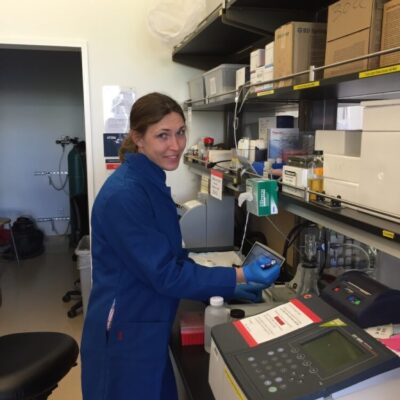Maryia Barnett Rose Hills
Specialization of the Human Mediator Complex: How Does This Happen?
Misregulation of cell differentiation often leads to pathological cell fate and frequently employs mechanisms that alter gene expression. There are multiple levels of transcriptional regulation. The focus of my research is one of the subunits of the Mediator complex, MED12 and its paralogue MED12L. The Mediator is known as a general transcription factor, and so it is not expected to specialize. Meanwhile, Dr. Darzacqs lab observed that upon specific knockdown of the MED12L gene (and not MED12), Human primary fibroblasts transdifferentiate into neuron-like cells, suggesting a unique function for this paralogue. In addition, MED12L is highly expressed in Human embryonic stem cells (ESC) and in tested cancer cell lines. By defining and characterizing promoters and enhancers for MED12L, this project aims to explain how the Mediator can be regulated in its composition, leading to differential transcription regulation of its target genes. It is important to understand how the Mediator becomes specialized as it will contribute to a better understanding of normal cell differentiation.
Message To Sponsor
The practical knowledge I will gain throughout the course of this summer fellowship will build upon the training I have already received, serving as a powerful foundation for future scientific endeavors. I am extremely grateful to the Rose Hills Foundation and program coordinators for this opportunity to conduct cutting-edge research on transcriptional regulation. This experience will undoubtedly shape my professional trajectory in ways that I cant yet imagine and for this I have profound gratitude.